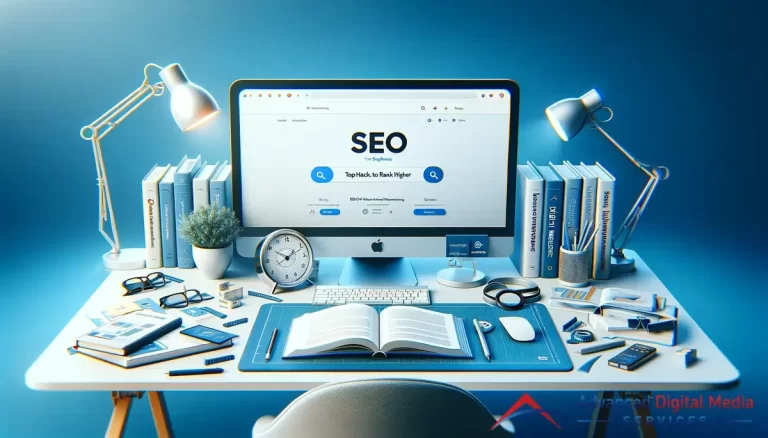Search engine optimization (SEO) is almost synonymous with digital marketing; it’s the primary strategy used for the majority of online advertising. SEO may seem like a relatively new concept, but it’s as old as the Internet itself.
In the early days of the Internet, search engines and search engine optimization were developed to organize what was then an overwhelming pool of information. Back then, the rules and algorithms that dictate how search engine optimization works were non-existent, allowing web developers to bombard their websites with keywords to land a high ranking score.
The arrival of Yahoo and Google changed the game for search engine optimization. By the early 2000s, Google enabled the regulation of search results to organize data and prevent websites from bombarding keywords. Because of this, Google was able to create a neutral ground for brands and businesses – starting the wide usage of search engines for digital marketing.
Search around the Web regarding the history of search engine optimization, and you will find long detailed articles on how it started, where it started, and why it started. However, the bottom line is this: search engine ranking. Because of the need of brands and businesses — or even artists — to put their names out on the Internet, developers have created a playing field that will cater to digital marketing.
The passing years have slowly changed the game, and the Internet developed into how we know it today. Throughout the years, search engines have created and changed algorithms and rules that are beneficial to the exposure and promotion of brands and businesses. They aim to level the playing field for brands and businesses to get an equal chance for promotions.
Here, keywords and other web elements such as layout and external links gain more relevance. In this new decade, search engine optimization rules and algorithms have changed once again.
The Rise of Social Media and Infinite Scrolling
By the turn of the decade, social media became the widespread norm. People go to the Internet to access social media websites for news and to catch up with other people. The popularity of social media has increased mainly due to the development of smartphones, ushering in a new trend: infinite scrolling. Digital marketing and e-commerce have significantly changed, adapting to the layout of smartphones and creating a mobile-friendly interface.
Social media app development considered smartphone formats, which led to the invention of infinite scrolling, also known as continuous scrolling, which maximizes a user’s attention span and encourages online activity.
Continuous scrolling eliminates the “next” button and automatically adds the contents of the next page without the loading time. Simply put, continuous scrolling allows users to scroll through the contents of the app endlessly.
The infinite scroll feature is an excellent addition to search engines because it provides users easy access to information that is not usually found on the first page of the search query alone. Most apps update their interface to include infinite scrolling; the more time a user spends on an app or website, the bigger site activity it causes. This latest development has done wonders for social media apps like Pinterest, Instagram, and Facebook, changing the game again for digital marketing.
Brands and businesses followed suit once they got the hang of social media marketing. They maximize this new technology to increase app engagement and, eventually, sales. As brands tend to compete towards the top spot at Google, the search engine giant remains to provide a neutral ground.
Last October, Google finally introduced continuous scrolling for smartphones. According to the tech giant’s press release, based on their experience, people tend to focus on the first page of the search results only. However, there are instances when people tend to look thoroughly for information and scan numbers of pages to find the necessary answers to their queries.
Google aims to make the search engine more seamless with continuous scrolling. It automatically loads each pagination of the search result, making it easy for people to find websites and information they need. This feature is relatively new to Google, but digital marketers – especially those who rely greatly on search engine optimization – are a bit wary.
Will Continuous Scroll Hurt SEO?
Here’s what search engine optimization does for your brand or business: it provides organic rankings in search engine result pages. By using the right keywords, a brand or a business can land on the first page of search engine websites like Google – and that is good for business. The higher a website lands on search engines, the more website traffic it can produce.
In the advent of continuous scrolling, most digital advertisers are worried that it will affect the algorithms for SEO strategy. Although SEO strategies are a series of trial and error, brands and businesses are not interested in taking chances. Tech experts explain that the infinite scroll feature will “blur the lines” between the first page of the search engine and the second page, changing how pages are ranked.
Even though the addition of the continuous scroll feature in Google seems to be an insignificant change, for now, SEO experts are mindful of the subtle changes. After all, digital marketing is fickle, and one can never know when the next trendy strategy will blow up.
Some SEO experts argue that changes will gradually arise as Google further develops continuous scrolling. Here are the elements that might be affected by infinite scrolling:
- Click-Through Rate – The click-through rate is the gauge used for measuring how effective the keywords you used in your content are. In the advent of continuous scrolling, experts argue that the first page will no longer be the priority. If you want your website to land on the first page, using the right keywords is necessary to increase the CTR.
- Task-Oriented Activities – People who visit websites for specific content — for instance, in e-commerce sites — will find the infinite scroll feature stressful. Unlike the old-fashioned scrolling method, websites that adhere to continuous scrolling do not organize content accordingly because of their linear layout. Web developers should take the layout and the content offered before adding the continuous scroll.
- Page Length – Online readers often rely on a website’s scroll bar to determine whether or not the content they are looking at is almost at its end. With scrolling that is continuous, the website will no longer give an accurate page length; this is a disadvantage to researchers with limited time and those who are only skimming content.
How To Ensure Your Website Will Rank on Google
As mentioned, search engine optimization deals with search engine rankings. With the addition of the infinite scroll feature, website ranking has become more challenging. Despite changes in search engine algorithms, you must never forget about the basics. Optimize your website pagination by making it mobile-friendly with an interface that works well in smartphone format. If you want your business to be on the first page of Google and gain maximum website traffic, here are some tips to optimize your content you should never forget:
1. Improve On-Page SEO
Although it is still quite unclear how continuously scrolling pages can affect search engine optimization long-term, the surest way to rank your website on Google is to ensure that you have competitive strategies for search engine optimization. If you are running a team, you must ensure that your digital marketing personnel and web developers are equipped with the latest search engine optimization trends and changes. Success in search engine optimization does not come overnight; it is a series of trial and error.
2. Add Latent Semantic Indexing (LSI) Keywords
In simpler words, latent semantic indexing or LSI is a program that identifies synonyms and the relationships between contexts inside content. LSI helps find words related to your primary keyword to help for search engine optimization. A word of caution: although LSI keywords can be mostly made up of the primary keyword’s synonyms, it will not always work for other words.
3. Monitor Technical SEO
Since Google and other search engines are always adding developments and changing the platform to create an equal playing field for content creators, it is essential to ensure your website can compete with other brands in terms of search engine optimization. The constant monitoring of technical search engine optimization will ensure your website is up-to-date and running smoothly, according to each search engine’s algorithm.
4. Publish Good Quality Content
This is the most basic rule for ranking your website in search engines. People will flock to interesting and well-written content. While using the correct keywords and other technical search engine optimization can help bring traffic to your site, it will always come down to how good your content is. Always prepare engaging content for your website visitors. Find out which of your previously posted content garnered significant website traffic and use it as an example. Take note of its topic and the tone used in that post. Holiday content can also bring in traffic; note important holidays and special events to give you time to create specific content for the occasion.
Ranking in search engines like Google takes careful strategy and planning. With the arrival of continuous scrolling, it is best to identify the type of content you offer— e-commerce, blogs, etc. — to give you ideas on how to organize your website’s layout and make it mobile-friendly if continuously scrolling is not an option.
5. Use Internal Linking
Simply put: internal linking is putting links of your earlier content on another content for the reader’s consideration. This can help search engine optimization. Search engines will use these links to find specific content on your website. This is also how Google ranks websites — the more internal links, the more the search engine will consider a blog or article as high-value content.
The Role of Web Developers
While more and more people are becoming dependent on smartphones, most recent tech advancements are mobile-friendly. Web developers and people in digital marketing need to consider and monitor each change that search engines create in their algorithms to ensure the ranking of your website.
Web development is a crucial part of search engine optimization and digital marketing. Plan your strategy with a good content calendar and make the necessary tweaks to ensure your website adheres to new algorithms.
Starting a digital marketing campaign can be a bit overwhelming. Fortunately, most website hosting services offer digital media services to boost your content and ensure search engine ranking. Another good option is hiring professionals with expertise in digital marketing and search engine optimization.
Let Advance Digital Media Services Help You With Your SEO Needs
If you’re trying to optimize your business website but do not have the patience or time to learn about SEO, Advance Digital Media Services can help you.
Advance Digital Media Services provides web development, content planning, and SEO strategy for your business. From web development to search engine optimization services, our team of experts builds top-notch and reliable websites that will help you stay on top, no matter what.
Call us now, and let’s talk about content creation, web development, and page optimization for your website to attract customers.





